If I were a rich man,
Yubby dibby dibby dibby dibby dibby dibby dum.
All day long I'd biddy biddy bum.
If I were a wealthy man.
[…]
And it won't make one bit of difference if I answer right or
wrong.
When you're rich, they think you really know!
An absolute giant of Yiddish literature, Sholem Aleichem
populated his stories with all the colourful characters of the Eastern European
shtetl. And one of the most convincing
is the ‘gvir’: the rich Jew; the parvenu, the village boss who mistakes
subservience for respect and trades ‘charity’ for influence and power.
The Jewish shtetl is a thing of the (nostalgic) past; not so
the gvir; that tragi-comic character, it seems, still struts around: among us,
but not quite one of us.
***
Sir Mick Davis is a very rich man. He made his money in mining (coal, metals,
petroleum); but don’t picture him in a hard hat with black on his nose – I
suspect that he mines primarily from the comfort of a well-upholstered,
directorial armchair. And I guess he’s
put that money to good use: he is an important donor to the Conservative Party
(Labour also likes money; but it doesn’t like Jews – let alone rich ones!) Davis served as Treasurer and – until
recently – Chief Executive of the Tory Party.
I know, I know… a miner called Davis… what a cliché!
But no: Sir Mick ‘the Miner’ isn’t Welsh –
he’s Jewish.
So, naturally, he also took
an interest in the affairs of British Jewry: in 2009, he became Chairman of the
Jewish Leadership Council.
How, you’re
asking?
Well… previously, the JLC had
been led by an elected official: the President of the Board of Deputies of
British Jews.
It looks like Mr. Davis took
advantage of a change of guard at the helm of the Board to shoulder aside the
new President.
Or (to use the far more
delicate language employed by the
Jewish
Chronicle)
he grasped the reins of
its [the JLC’s] executive.
The newspaper commented – perhaps with a hint of irony –
that this
may not have been exactly a palace coup but it showed who was
boss in town.
Didn't it just! I should warn you here: irony plays a big role in this story;
where are you, Sholem Aleichem, when we most need you?
Mr. Davis first courted controversy in 2010, when he opined
(in English and in public) that Israel ‘could become’ an apartheid state.
Some may see quite a bit of irony in that:
Mick Davis was born and lived his formative years in Apartheid South
Africa.
And… I might be wrong here, but
I’ve never seen his name listed among the
many
South-African Jews who actively fought that appalling regime; unless, that
is, one considers immigrating from South Africa to the UK as a brave act of
social protest.
If indeed young Mr.
Davis omitted to valiantly combat the apartheid in his home country, it must’ve
been just a matter of
perspective: it seems
it’s easier to recognise (and, consequently, criticise)
potential
apartheids that ‘may occur’ thousands of miles away; it’s not always easy to
spot an
actual apartheid operating under one’s very nose.
Mr. Davis’s comments on Israel’s putative apartheid-hood so
outraged many in the British Jewish community that a petition was written
demanding his resignation from public community positions.
But it was quickly withdrawn, when Sir Mick
threatened
to let the whole weight of his… err… indignation bear – by threatening to deploy
his heavy legal artillery against the poor... err... much less indignant petitioner!
Not, God forbid, that Mr. Davis believes that
freedom of speech is for him, but not for others; no, it’s just that,
apparently, the petition had ‘misrepresented his positions’…
More recently, Sir Mick has once again become the talk of
the (virtual) shtetl: in the cover-page article of the (almost bankrupted, but
fortunately freshly resuscitated) Jewish News, he accused “Israeli politics”
of “violat[ing] values of the Diaspora”.
I find the article full of (unintended) irony. So let me read it to you with a running
commentary.
Says Sir Mick:
Israel remains surrounded
by hostility but its emerging existential threats come from within.
Now, when he’s right – he’s right: the Jewish state is
indeed surrounded by enemies: there’s for instance Iran (80 times larger than
Israel in area, 9 times in population, 5 times in economic output), whose Holocaust-denying
leaders call for Israel’s blood every day – and twice on Saturday. Leaving aside its nuclear ambitions, Iran has
a large, strong and well-equipped military, which is currently busy entrenching
itself in Syria, as close as it dares to Israel’s borders. Another of those borders precariously
separates Israel from an Iranian ally: Hezbollah – and its 100,000+
rockets. To the south, there’s Hamas and
the Palestinian Islamic Jihad; i.e., tens of thousands of rockets and mortar
rounds, some capable of reaching targets hundreds of miles away. In Sinai (a territory 3 times larger than
Israel, which the Jewish state once controlled but ceded in return for peace
and security) lurks a very active branch of the Islamic State. You know – those nice people who’ve recently
beheaded, crucified and burned a broad swath of blood and tears through Syria
and Iraq. And that’s before one thinks
of threats that currently seem – for whatever that’s worth in the Middle East –
less imminent: such as a certain manic dictator with neo-Ottoman ambitions.
Yet Sir Mick has decreed that these are not really
existential threats. ‘The problem’, he
seems to preach to those Israelis who face the rockets, the bullets and the
knives, ‘the problem is not that they want to kill you. No, let me tell you what the real problem
is: it’s your own suicidal tendencies!’
Now, Mick Davis is certainly entitled to his opinion. It would be good to understand, however, on
what specialist knowledge it is based? Because,
although Costa Coffee has hosted many a debate on grand strategy, it doesn’t
actually count as an accredited military academy.
But, as we know, people don’t actually need to have a clue
what they’re talking about – they can still talk. The problem, says Sir Mick, is Israel’s
own
dysfunctional political system.
And
why is that political system so bad?
First, he explains, there are
the hazards of proportional
representation.
And I thought “proportional” was actually a positive
thing… stupid me! I thought that it
meant that each citizen gets a vote that is worth exactly the same; that the
makeup of the Parliament is a true reflection of the views of the electorate,
warts and all. That’s not what ‘first
past the post’ delivers. In 2019, for instance, 1 in every 8 Brits (circa 12%)
voted for the Liberal Democrats; but, because of the ‘first past the post’
system, that party only has 11 MPs – i.e. a mere 1.7% of the House of
Commons.
In a proportional system, with
12% of the votes they would have gotten, of course 12% of the seats in Parliament
– that’s what “proportional” means.
Don’t get me wrong: one can argue about the advantages and
disadvantages of either system – till one’s blue in the face; if one donates to
the Tories, I suppose that ‘first past the post’ is wonderful – it results in
more bang for the buck; if I were to ask Liberal Democrat supporters, they
might feel differently. But is the “proportional
representation” any less democratic?
So what is Sir Mick’s beef with Israel’s “proportional
representation”. Well, he tells us:
the outcome is a
government the public didn’t vote for, led by a prime minister seemingly driven
by holding onto power and propped up by parties who had previously pledged on
principle not to govern with him.
So, Mr. Davis doesn’t like the outcome of the elections. I get that.
I just don’t think that’s a good enough reason to change the
system. No disrespect, Sir Mick!
But why is this new government one “the public didn’t
vote for”? It represents a broad
coalition, from left (the Israeli Labour Party) to centre (Blue & White) to
right (Likud). The prime minister will
be Benjamin Netanyahu (leader of the largest party, which received 29% of the
votes), followed by Benny Gantz (whose party received 27% of the votes).
True, before the elections Gantz promised not to serve in a
Netanyahu government. You caught him there,
Mr. Davis, Sir! He’s a terrible,
terrible man – the first politician ever to break a pre-election promise. I’m sure nothing like that ever happened
while you were Chief Executive of the Conservative Party. (In Gantz’s defence, he may have followed bad
examples: before elections, every US president in the past 25 years promised to
move the US Embassy to Jerusalem. It
took a quarter of a century to find one that actually did – and I doubt you
like him much.)
It is, I agree, terrible that Israel has such a “dysfunctional
political system”. It gets people
frustrated. So unlike UK’s wonderfully
functional political system; the one that produced a pro-Remain Parliament
despite a clear pro-Brexit referendum; plus 3 years of paralysis, a government
begging for elections and an opposition courageously opposing them, etc. etc.
Where Sir Mick is right is that Israel will now have (for a
while, at least) a Prime Minister who faces
“corruption charges”.
Netanyahu stands accused of having traded
favours in return for a ‘kinder treatment’ at the hands of a major news
outlet.
British politicians would
certainly never do anything like that!
Although there were things… I seem to remember quite a few MPs
(including ministers and shadow ministers)
dipping
their hands rather dishonestly into the public purse…
But that’s a different thing altogether!
Oh, I do admire Sir Mick’s principled stance.
In fact, I herewith demand that Netanyahu’s
sorry ass be put in prison – if found guilty by a court of law.
It’s just surprising for me to hear rumours
that, in the past, Mr. Davis may have taken
a
less righteous position against alleged corruption by one of his own
underlings.
Well, given those false
rumours, I’m sure that Sir Mick cannot but agree with me that people (including
the Chairman of the Jewish Leadership Council and the Prime Minister of Israel)
are innocent, unless proven guilty.
It’s only halfway through his article that Mr. Davis comes
to the issue that really awoke his ire: the planned annexation by Israel of
parts of the West Bank – in accordance with the latest US ‘Peace to Prosperity’
plan.
When we talk of
existential threats to Israel, then annexation is the genuine article.
That’s, of course, a valid opinion. Unfortunately for Mr. Davis, it is just the
opinion of an outsider. Sir Mick is not
Israeli; he is a British citizen, paying his taxes in the UK. It is Israeli citizens (i.e., people who live
in Israel, pay taxes in Israel, serve in the army in Israel and risk being
bombed to smithereens in Israel) that are entitled to decide (as opposed to
opine) what constitutes genuine existential threats to Israel. And a clear majority of those Israeli
citizens voted for parties that accepted the US proposal.
But it doesn’t look like Sir Mick is content with ‘just’ an
outsider’s opinion:
The keep your wallets open
and mouths shut model of Israel-Diaspora relations was viable when Diaspora
Jewry saw in Israel’s political leadership an embodiment of its values rather
than a violation of them.
The
“wallets open” was understood – and not just by
me – as a hint.
After all, as the Jewish
News
says,
Sir Mick is not just any outsider; he is
[o]ne of Britain’s biggest
philanthropists to Israel.
I just wonder if, when Mr. Davis decided to give whatever he
gave “to Israel” (or, more likely, to whatever causes and organisations he
finds useful in Israel), he informed people that those donations came with a
clear caveat: ‘I pay – I get the say’.
‘Coz, had he said so to me (I’m Israeli), I would’ve told him to keep
his money. I have no idea what Sir
Mick’s experience is with donations to the Conservative Party; but Israel is a
sovereign country.
 |
| Isn't 'philanthropy' something done without ulterior motives? |
Apparently, however, some sovereign countries have duties to
set up other sovereign countries. How
else am I to understand Sir Mick’s sententious determination that Israel has a
moral and strategic
imperative to extricate itself from ruling over [the Palestinians].
Before I read Sir Mick’s wise words, I rather stupidly
thought it’s the task of every nation that doesn’t yet have independence to “extricate”
itself from its rulers. Including by
making the necessary concessions and compromises to achieve that goal. As Jews – and Indians, and Pakistanis – did
in 1947. In Sir Mick’s perfect world,
however, it is the sacred duty of Israel to offer
a tangible alternative on
this issue.
Well, a (or, rather, another)
“tangible alternative”
has just been offered by the US Administration.
It may not be an administration to Sir Mick’s liking; it may not be an
“alternative”
he likes, or that the Palestinians like.
But, surely, Mr. Davis hasn’t made his millions by walking away from
deals, simply because the opening offer wasn’t to his liking.
While
the
US document unsurprisingly expresses a US ‘Vision’, it also leaves the door
wide open for negotiations:
The peace agreement that
will hopefully be negotiated on the basis of this Vision should be implemented
through legally binding contracts and agreements (the “ISRAELI-PALESTINIAN
PEACE AGREEMENT”).
In fact, the reputed architects of the ‘Vision’ have gone to
great pains to make that clear.
Speaking
about the Palestinian leadership in an interview he gave to an Egyptian media
outlet, Jared Kushner
said:
If there are things they
want to change, if they don’t like where we drew the lines, they should come
and tell us.
Were they able and willing to make peace, the Palestinian
leaders could simply have said ‘We agree with the principle that there should
be an independent Palestinian state alongside Israel. Everything else – let’s negotiate.’
In the absence of such a response, Israel’s ‘duty’ of
providing “a tangible alternative” becomes a duty to provide ‘a tangible
alternative acceptable to the kind of leadership for whom no alternative was
acceptable in the past 100 years’. I am
not as knowledgeable as Sir Mick – but I found no such ‘duty’ in the
Torah. Maybe it’s in the Statutes of Values
of the Diaspora that he appears to own.
But the relationship with the Palestinians isn’t Sir Mick’s
only imputation towards the Jewish state.
Israel, he intones
must radically improve
social mobility within its own society.
And why does he think that Israel has such poor social
mobility? Because
for an OECD country,
Israel’s gaps between rich and poor are extraordinary.
Some may view as ironic that a multi-multi-millionaire
preaches about narrowing the
“gaps between rich and poor”.
But beyond the irony,
according to OECD data,
Israel has a Gini Coefficient of 0.35.
UK’s is 0.36. Gini is a widely used measure of income inequality: 0
(zero) corresponds to perfect equality, 1 (one) to worst possible inequality –
so the lower, the better.
Well, I’d like
to think that Sir Mick applies more rigorous research and due diligence to his
business dealings than he does to his pronouncements on social issues.
Otherwise, I’d say such sloppiness is… how
should I put it…
“extraordinary”!
 |
| Income Inequality in OECD countries. Israel in red. The UK is the 4th bar to the right of Israel. |
Next, Sir Mick’s bounces from pseudo-economics back to
pseudo-politics:
Israel advocates around
the world, of which I am one, boast about the full citizenship rights of Israel’s
Arab citizens and their role in Israeli life. However, the MKs those citizens
elect are still considered governmentally trayf.
Firstly, on behalf of all my countrymen, I’d like to thank
Sir Mick for his unparalleled advocacy. It’s
valiant defenders like him that make us feel so much safer!
However, the rest of the passage is a bit of a spin.
Those MKs are not considered
“governmentally
trayf” because they are Arabs (indeed,
one
of them happens to be Jewish); nor because they are elected by Arabs (there
are
Jews
who vote for the ‘Arab List’ and there are
Arabs
who vote for the ‘Jewish’ parties);
no,
the problem is not the ethnicity or religion of those MKs or of their supporters
– but the political views that they represent.
It’s about Zionism vs. anti-Zionism, yes – but not just.
The Arab Joint List includes a
communist party; a
hyper-nationalist
party; and an
Islamist
Party.
Given the record of those ideologies
in the region and the world, mainstream Israeli politicians may perhaps be
forgiven for not wanting such parties in the governing coalition.
But the issue is more fundamental than that. In a parliamentary democracy, there is a
right to vote, to elect their parliamentary representatives (and be elected as
such); I wasn’t aware that there was a right to have one’s representatives
included in the governing coalition – whatever their politics. Are you making up democratic rules as you go
along, Mr. Davis?
Apparently, Sir Mick’s list of Israel’s many violations of ‘values
of the Diaspora’ also includes the fact that the Jewish state has failed to
teach British Jews Hebrew:
How for example, can we
nurture a thriving and mutual beneficial sense of shared peoplehood, when so
many Diaspora Jews, particularly in the English-speaking world are unable to
speak Hebrew, the language of their homeland?
That is indeed a problem – and I must thank Mr. Davis for
pointing it out. Too bad he pointed it
out… in English; in a Diaspora Jewish English language newspaper!
And it’s not Israel’s only linguistic and cultural sin. Mr. Davis also determines that:
Jewish Israelis need more
and better education in Arabic and Arab culture. Arab Israelis need more and
better education in Jewish culture and history.
Don’t you just looove one that always asks for
“more and
better” – but fails to even mention what has already been achieved?
To start with, most Israelis (or their
parents or grandparents) hail from Arab lands – so Arab culture is hardly
unfamiliar to them.
Arabic
is part of the curriculum in most Israeli secular schools – at all
levels.
True, it is not compulsory to
study Arabic – it’s one of the optional languages students can choose to study
(and many do).
In recent years,
more
teachers of Arabic are employed in Jewish schools – no doubt because Mr. Davis
has determined that this is the way forward.
Most Arab Israeli parents understandably choose to give their kids an education in
Arabic schools – but that education
includes
the study of Hebrew.
And actually, may I suggest that – before he idly shoots his
mouth off again – Sir Mick takes the time and the trouble to watch the excellent
Israeli series ‘Fauda’? It is available
on Netflix. With English subtitles, Sir Mick;
no worries!
Don’t get me wrong: Mr. Davis can actually have a say on how
Israel looks like – and how she should look like in the future; once he comes
to live there, of course. I’m sure he
has enough money to buy himself a decent flat in Sderot!
But, let’s face it – he is unlikely to make Aliyah. In fact, he doesn’t even envisage such
possibility. He bashes Israel ‘as a Jew’
from the Diaspora. Why? A very charitable explanation would be ‘because
he cares’. It’s a very strange way to
show it, but hey-ho…
Unfortunately, I am more inclined to believe an explanation
that Sir Mick himself
let slip at some point:
I think the government of
Israel […] have to recognise that their actions directly impact me as a Jew
living in London, the UK. When they do
good things it is good for me, when they do bad things, it's bad for me. And
the impact on me is as significant as it is on Jews living in Israel.
There are no less than 4 rather emphatic me’s in that
short peroration. It would seem that Mick
Davis does care deeply… about Mick Davis!
Well, Mr. Davis Sir, as an Israeli who served for 20 years in
the IDF, I am sorry for all the inconvenience that we caused you!
Oh, and… for whatever it’s worth, this Jewish Israeli (of the
Ashkenazi variety) loves the Arabic language and culture. Take for instance this brilliant proverb,
which applies so well to you and your hatchet-job of an article:
الكلاب تنبح والقافلة تسير
It means: ‘The dogs bark,
but the caravan moves on’. So long, Sir
Mick!
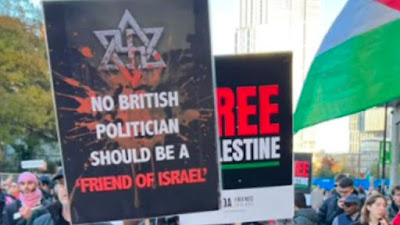





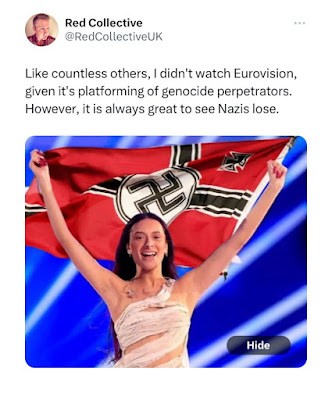


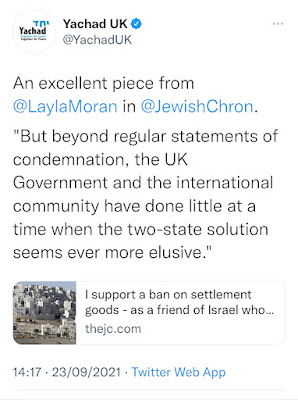






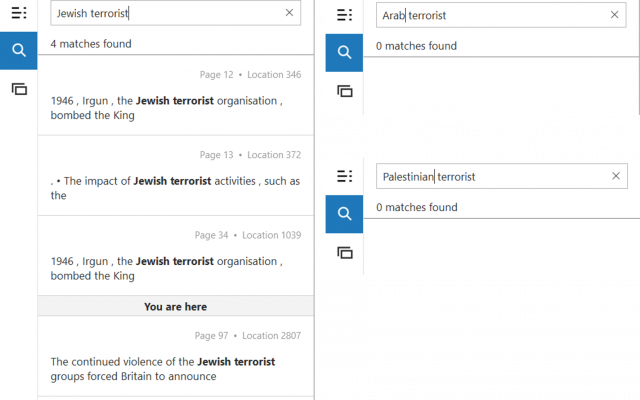
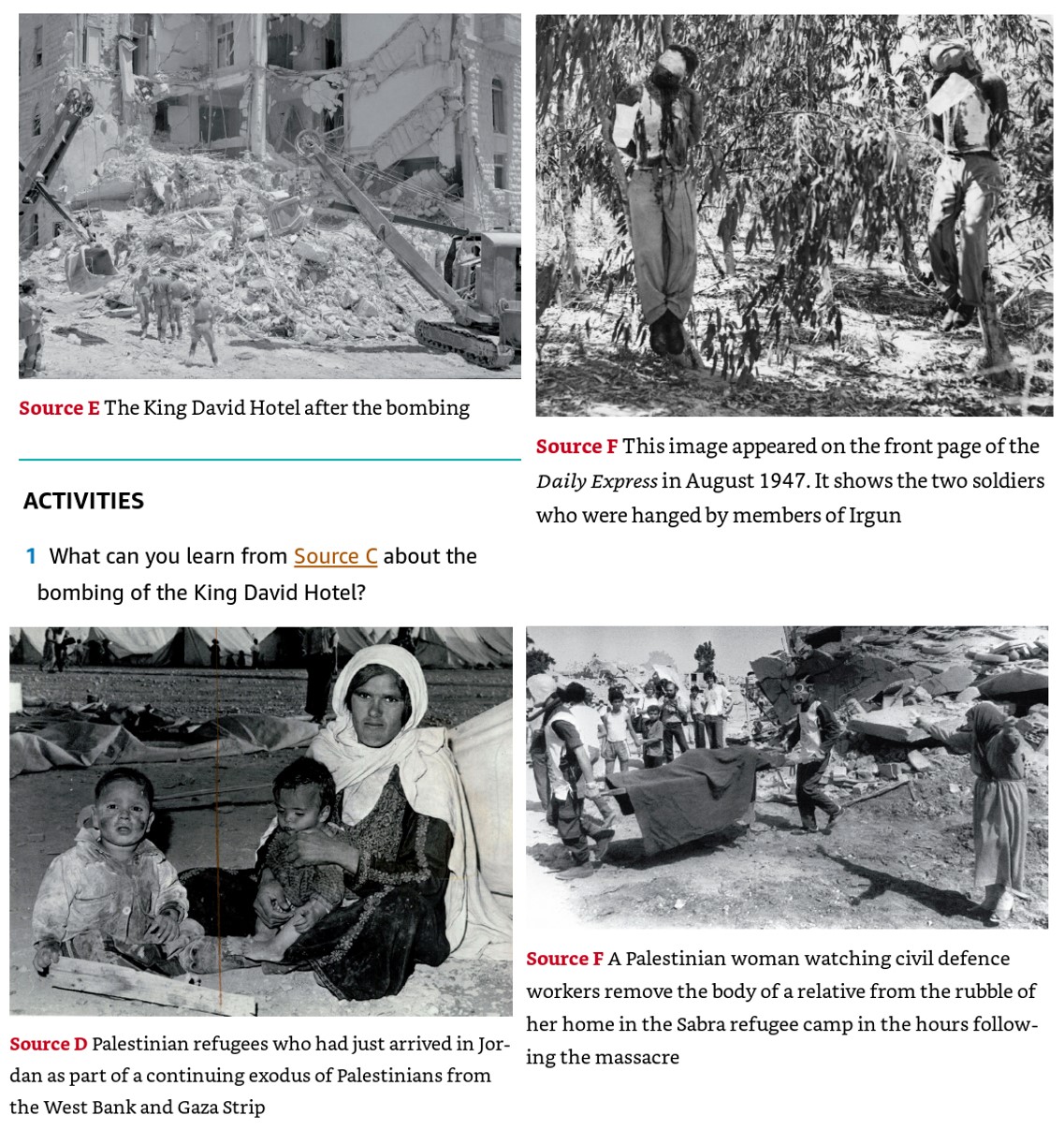


- Follow Us on Twitter!
- "Join Us on Facebook!
- RSS
Contact